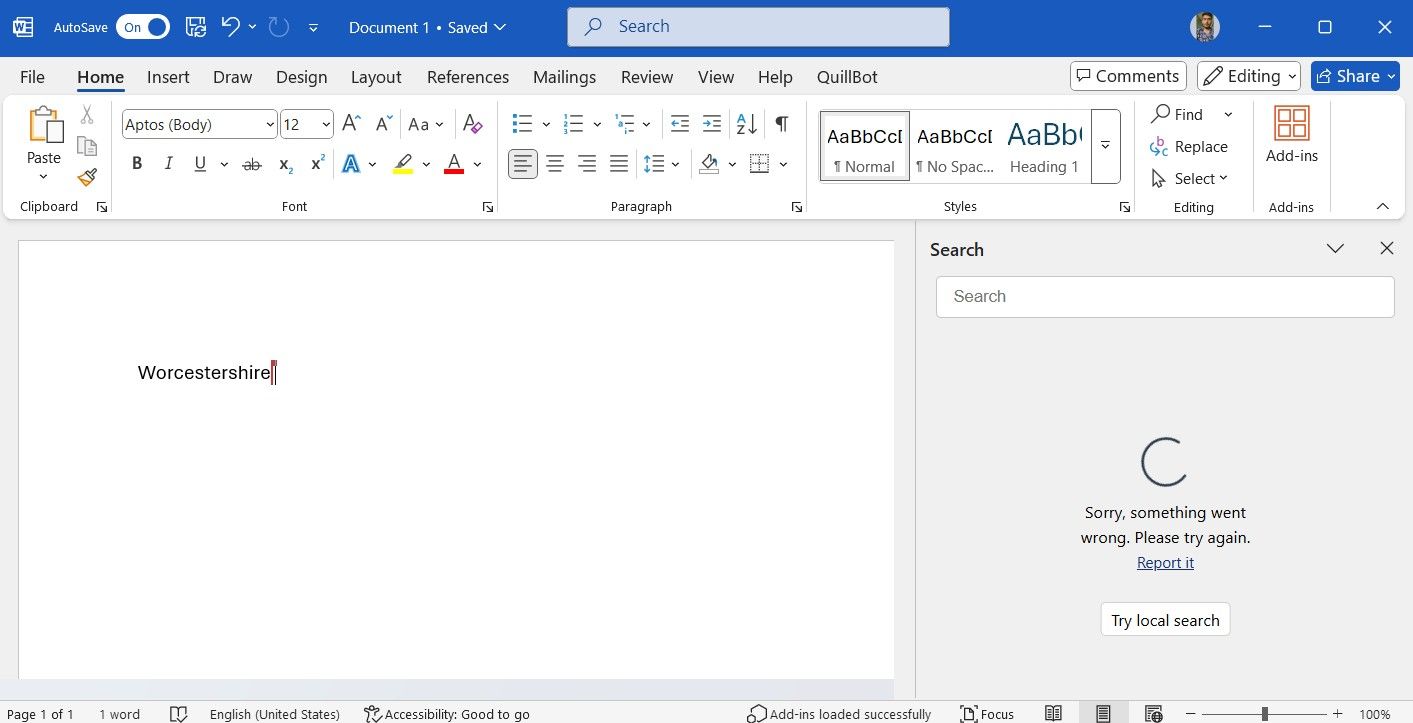The Smart Lookup feature of Microsoft Word was used to provide information about a word or phrase in a document by searching the internet. I’m using the past tense here because Microsoft has retired this feature and looking to replace it with something not everyone will like.
Why Microsoft Has Retired the Smart Lookup Feature
Microsoft introduced the Smart Lookup feature in Office 2016. Since then, it’s been my go-to tool whenever I came across a new word, like Worcestershire, whose definition I wanted to know. However, Microsoft recently updated one of its support pages to announce that the Smart Lookup feature was officially retired on January 1, 2025.
If you haven’t updated Word recently, the search option still appears when you select and right-click a word or phrase, but clicking the search option displays the message, “Sorry, something went wrong. Please try again.”
While Microsoft hasn’t officially explained why they removed the Smart Lookup feature from Word, it’s pretty clear they’re making room for Copilot. Microsoft wants you to rely on its AI chatbot, Copilot, instead of built-in Word tools like Smart Lookup to understand the meaning of words or phrases in a document. It’s worth noting that Copilot is only available in Word if you have a Microsoft 365 subscription. If you’re using perpetual licenses or LTSC releases, Copilot won’t be integrated.
Is Copilot Ready to Replace Smart Lookup?
Currently, there isn’t a direct alternative to the Smart Lookup feature in Copilot for Word. When you select text in Word, the only options available are Write a Prompt, Auto Rewrite, and Visualize as a Table. None of these options offer functionality similar to Smart Lookup.
However, since Microsoft is heavily investing in AI-powered features, it’s likely only a matter of time before they introduce a Copilot option with capabilities similar to Smart Lookup. When that happens, you’ll probably get more detailed responses and, more importantly, the ability to ask follow-up questions if you have further doubts about a word or phrase.
Until that feature becomes available, the only way to find the meaning of a text is to manually search for its definition on Google. While this method isn’t as direct as Smart Lookup, it’s currently the only alternative.
The Smart Lookup feature definitely won’t be the last feature Microsoft removes from Word. In the near future, it seems likely that you’ll see other features like Read Aloud, Translate, and Thesaurus removed from Word and replaced with Copilot. Unfortunately, there’s not much you can do about it unless you’re ready to switch to a Microsoft Office alternative like LibreOffice.






